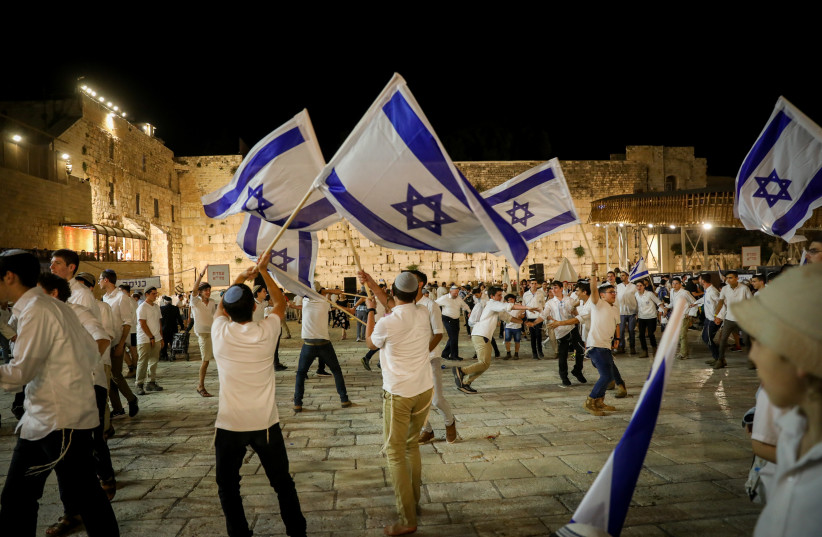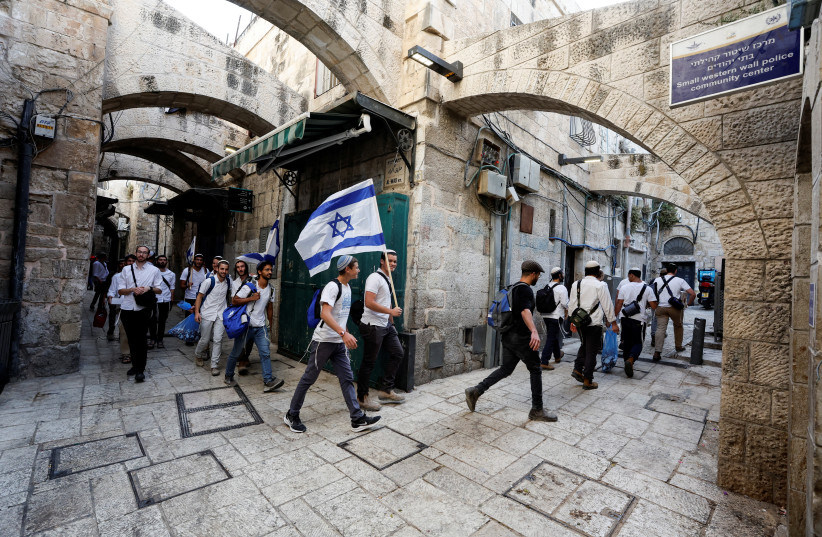As events began to unfold on Jerusalem Day in Jerusalem, the Iranian regime is watching closely to see how it can try to fuel conflict in Israel. Iran knows it lacks some options to encourage Palestinians to attack Israel because its media doesn’t have deep inroads with Palestinian readers and the Islamic Republic has in the past failed to make gains against the Jewish state. Yet this Jerusalem Day gives Iran another opportunity to fan the flames.
<br>Economic insecurity in Iran
Amid stories of economic problems at home – and insecurity felt by Iranians regarding infrastructure problems after a recent building collapse in a major city – Iran seeks to highlight Jerusalem tensions. This is clear from its coverage of clashes in Jerusalem as well as the statements by groups allied with Iran, such as Hezbollah and Hamas.
Among the first Iranian reports were at Fars News on Sunday, claiming that there was a “Zionist attack on Al-Aqsa Mosque.” The article views any Jewish visits to the Temple Mount as a conspiracy involving “Zionist settlers.” Iran says that the flag march later in the day “may [lead to an] explosion in the Palestinian territories due to the warnings of the Palestinian groups to respond.” What this means is that Tehran wants to help choreograph those tensions for its own interests.

Iran’s media covered the early morning tensions in Jerusalem on Sunday, noting that Palestinians had barricaded themselves inside the mosque. The Iranian report said that Israeli “regime forces chained the doors of the al-Qabli prayer hall this morning and surrounded the Palestinian worshipers inside.”
<br>Flag march
Iranian media noted the different routes of the “flag march” on Sunday and examined the different parts of the Old City that might be affected. “The Zionist regime police have identified two routes for the march today and have left the Zionist settlers free to choose either of these two routes," it said.
"The first route, which is shorter, starts from west Jerusalem and after passing Bab al-Khalil [Hebron Gate] – one of the historical gates of the old part of Jerusalem, it proceeds to the Western Wall.” The media notes that “the march often sees clashes between Palestinians, and settlers and Israeli police."

Iranian media also covered the Jewish visits to the Temple Mount, noting that “yesterday, Palestinian groups, including Hamas, called on all Palestinians to come to Al-Aqsa Mosque today, Sunday, to prevent the Zionists from invading and desecrating this holy place.”
The point of the recent tensions is that Iran believes that this will lead to “intense tensions between the Palestinians and the Zionists due to the stubbornness and insistence of the Israeli regime in attacking Al-Aqsa Mosque.” This claim is a fabrication but it is one that Tehran wants to push in order to fan the flames of excuses regarding the violence that could break out.
<br>Staying relevant
Overall then, the Jerusalem Day events provide Iran one more way to make its incitement relevant.
Much as Hezbollah has sought to remain relevant after performing badly in recent Lebanese elections, the Iranian regime also attempts to do the same. Last year, Iran encouraged Hamas to prepare massive salvos of rockets aimed at Israel in preparation for conflict. And it has used the recent tensions as an excuse to prepare more drones for attacks on the Jewish state. The last year has seen a major increase in these drone threats.
For Iran to use its weapons though, it requires some kind of increase in conflict between Israel and the Palestinians to use as cover for its own involvement.
